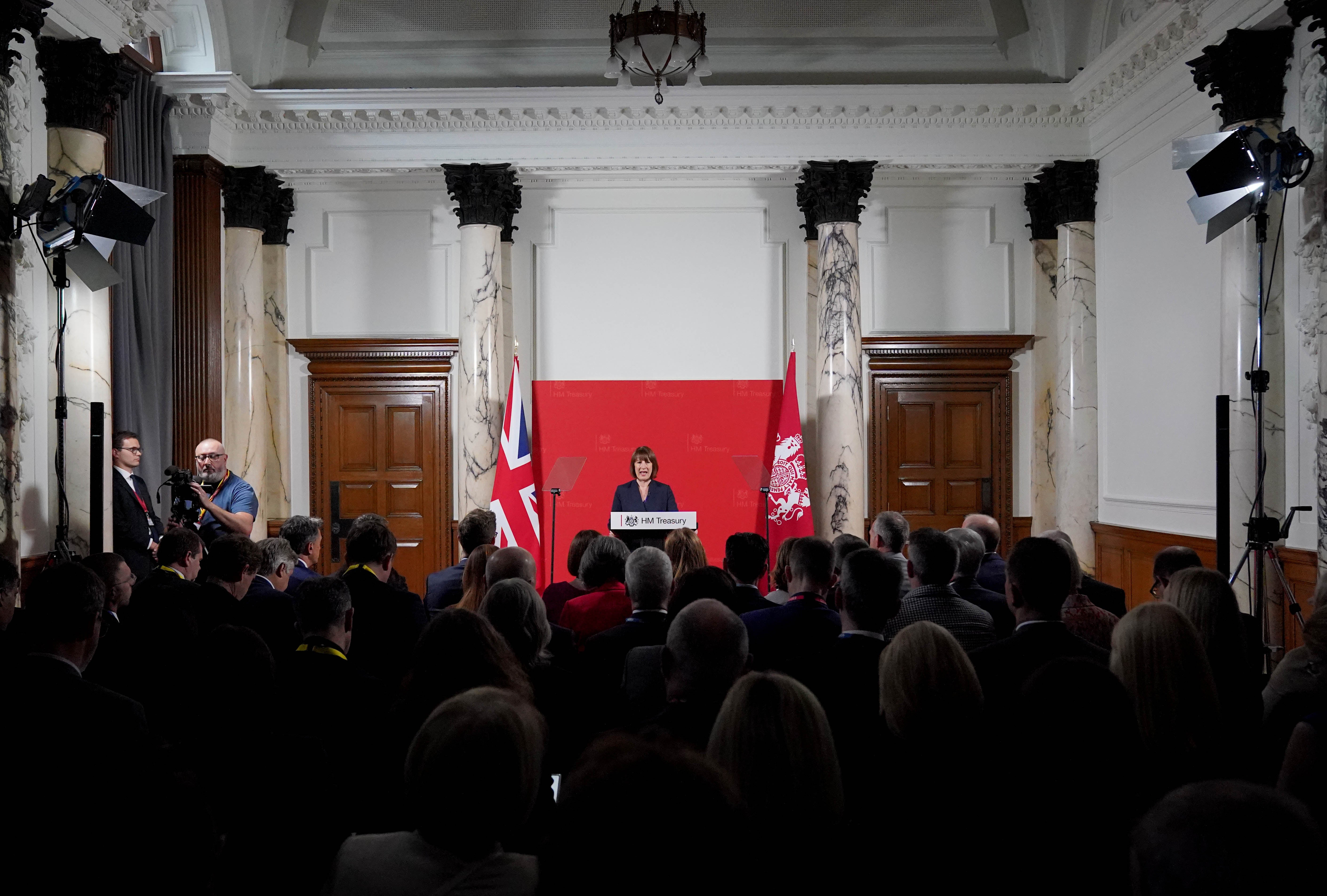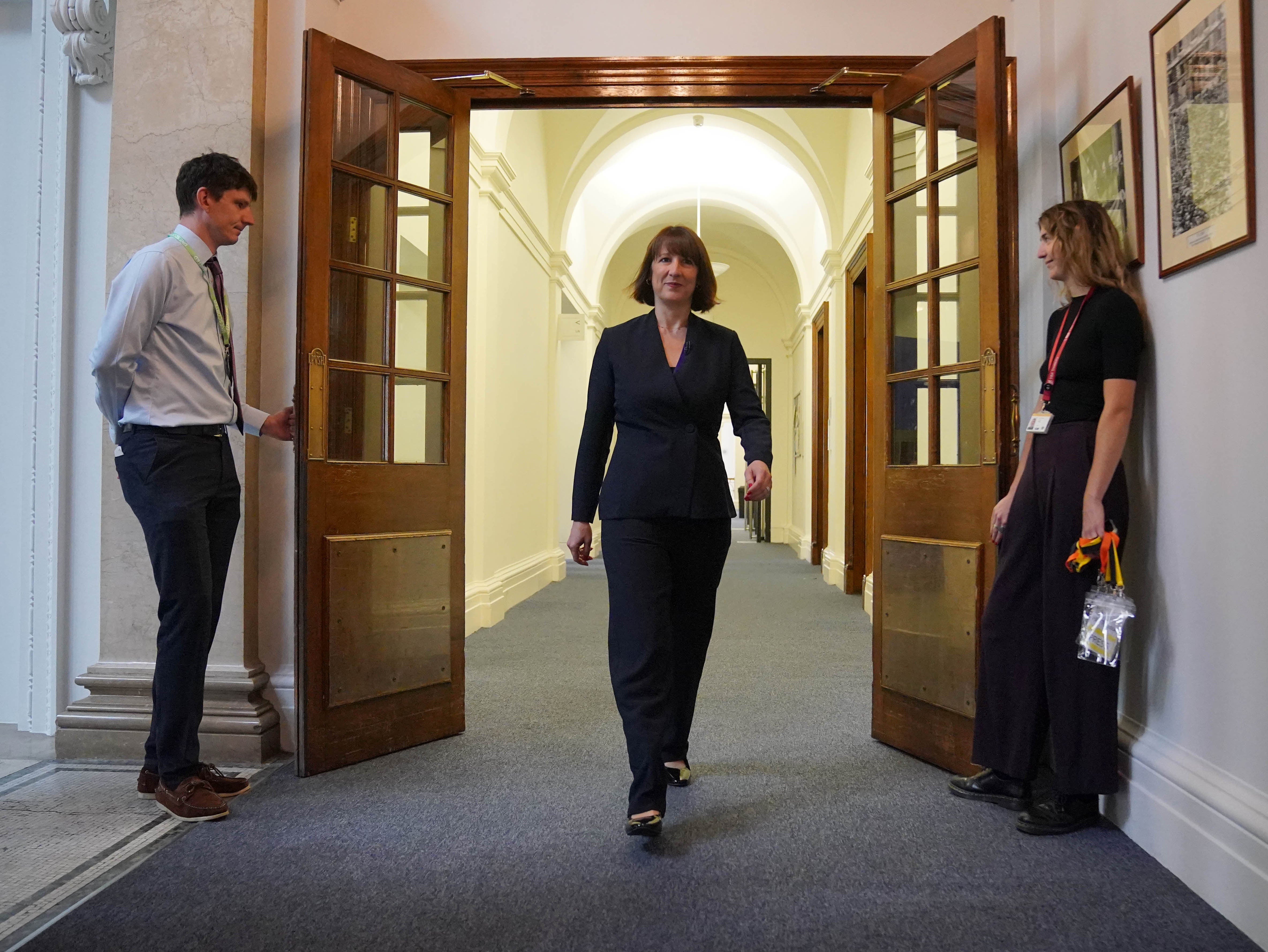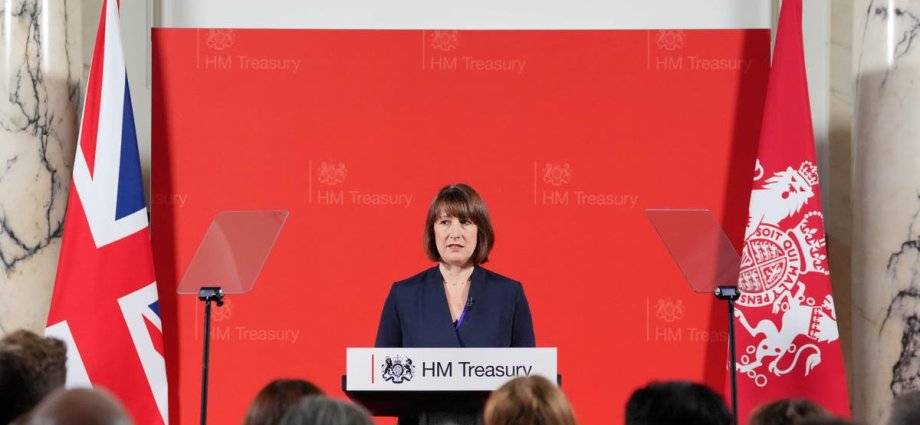Rachel Reeves ordered Treasury officials to produce an assessment of the financial “mess” left by the Conservatives as she promised a new focus on generating economic growth.
The Chancellor said the Government is ripping up planning rules to build more homes and critical infrastructure, saying she is prepared for “short-term political pain to fix Britain’s foundations”.
Ms Reeves will deliver her first budget in the autumn but as an immediate step she has asked civil servants to draw up an assessment of the current state of the economy and public finances.
In a speech at the Treasury, she said: “We face the legacy of 14 years of chaos and economic irresponsibility.
“That is why, over the weekend, I instructed Treasury officials to provide an assessment of our spending inheritance so that I can understand the full scale of the challenge, and I will present this to Parliament before the summer recess.”
She has already commissioned analysis which showed that if the economy had grown at the average rate of the OECD group of developed nations during the last 14 years, the UK’s economy today would be £140 billion bigger, with £58 billion more in tax revenues for public services.

“That is why growth is so crucial, not just for driving up living standards but also for having the money for public services,” she said.
The Chancellor said there will be major changes to speed up infrastructure projects and unlock private investment and that the Government will make “tough” choices to fix the UK’s economy.
She said: “The question is not whether we want growth, but how strong is our resolve?
“How prepared are we to make the hard choices and face down the vested interests?
“How willing, even, to risk short-term political pain to fix Britain’s foundations?”
Ms Reeves confirmed:
– The national planning policy framework will be reformed, including restoring mandatory housebuilding targets for local authorities as part of the drive to build 1.5 million homes over five years.
– The “absurd” ban on new onshore wind farms in England has been scrapped and energy projects will be given priority in the planning system.
– A taskforce will “accelerate stalled housing sites”, beginning with Liverpool Central Docks, Worcester Parkway, Northstowe and Langley Sutton Coldfield, representing more than 14,000 homes.
– Local authorities will get 300 additional planning officers.
– Next steps on creating a new national wealth fund will be announced shortly.

Labour’s housebuilding targets will mean allowing building on some land currently designated as green belt.
The Chancellor said environmental concerns cannot be allowed to block all developments.
“We must acknowledge that trade-offs always exist. Any development may have environmental consequences, place pressure on services and rouse voices of local opposition, but we will not succumb to a status quo which responds to the existence of trade-offs by always saying ‘no’,” she said.
The mission to kick-start economic growth is central to Labour’s hopes of funding public services without resorting to tax rises or being forced to slash spending in other areas.
The Chancellor said: “Economic growth is about more than lines on a graph. This is about whether working people feel better off, whether our high streets and town centres are revived, whether there are good jobs paying decent wages in more parts of the country.
“Success for me will be whether working-class kids from ordinary backgrounds have more opportunities than they do today, and I think those opportunities have gone backwards in the last few years.”
But she acknowledged being in Government will mean “difficult decisions” because of “the mess left by our predecessors”.
Confederation of British Industry chief Rain Newton-Smith said: “Businesses will be encouraged to hear the Chancellor speak clearly and passionately about making growth the defining priority of Government and to committing to the three pillars of stability, investment and delivery needed to achieve it.
“With improvements to public services and living standards dependent on a step change from the sluggish levels of growth we’re currently seeing, it’s clear that the Government needs to hit the ground running.
“Firms will welcome the Chancellor wasting no time in committing to tackle the burdensome and time-consuming planning processes that are holding back critical investments in infrastructure and housebuilding.”
Mike Childs, head of science, policy and research at Friends of the Earth, said that although much of the designated green belt bordering towns and cities “isn’t exactly a haven for wildlife”, it does serve a vital purpose in preventing urban sprawl and that building on it should be a “last resort”.











